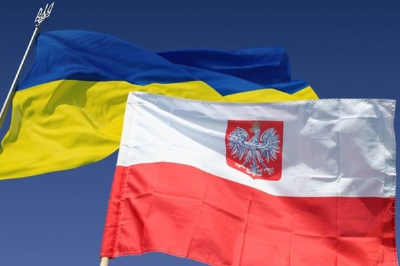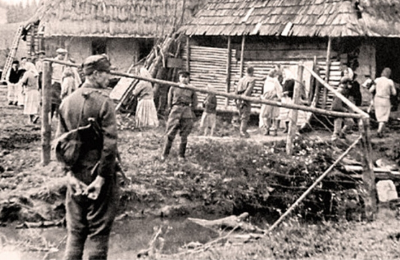
©
2 липня президент Польщі Анджей Дуда підписав закон, який офіційно встановлює 11 липня Національним днем пам’яті про поляків — жертв "геноциду, вчиненого ОУН і УПА" на східних теренах довоєнної Польщі. Закон, ухвалений Сеймом ще 4 червня, вже викликав хвилю реакцій як усередині Польщі, так і за її межами. Документ прямо звинувачує українські націоналістичні формування — Організацію українських націоналістів (ОУН) та Українську повстанську армію (УПА) — у "геноциді понад 100 тисяч польських цивільних" у 1939–1946 роках. Особливо згадується 11 липня 1943 року — день, коли, за польськими джерелами, відбулися масові вбивства поляків у понад 100 населених пунктах на Волині. "Мученицька смерть через національну належність заслуговує на окремий державний день пам’яті", — йдеться у тексті закону. МЗС України виступило з критикою нового закону, у заяві МЗС йдеться, що рішення польського парламенту "суперечить духу партнерства і добросусідських відносин" між двома державами, які сьогодні разом протистоять російській агресії. Події, відомі як "Волинська трагедія", вже не перший рік залишаються болючою темою в українсько-польських відносинах. В Україні діяльність УПА офіційно визнана боротьбою за незалежність, а її учасники — героями. У Польщі ж погляди радикальніші, особливо серед правоконсервативних політиків. Українська сторона закликала до «наукового, неупередженого дослідження спільної історії» замість політичних оцінок і підкреслила: «справжня примирення можливе лише через діалог і співпрацю істориків» . Цей закон став новим етапом у складному процесі польсько-української історичної пам’яті.
Poland Introduces Memorial Day for Victims of the OUN and UPA: What Does This New Chapter of Historical Tensions Between Warsaw and Kyiv Mean?
On July 2, Polish President Andrzej Duda signed into law a bill officially designating July 11 as the National Day of Remembrance for Poles — victims of the “genocide committed by the OUN and UPA” in the eastern territories of pre-war Poland. The legislation, passed by the Sejm on June 4, has already sparked a wave of reactions both within Poland and abroad. The law explicitly accuses Ukrainian nationalist formations — the Organization of Ukrainian Nationalists (OUN) and the Ukrainian Insurgent Army (UPA) — of committing genocide against over 100,000 Polish civilians between 1939 and 1946. It places special emphasis on July 11, 1943 — a date Polish sources cite as the peak of massacres, when Poles were reportedly killed in over 100 towns and villages across Volhynia. “Martyrdom on the basis of national identity deserves a dedicated national remembrance day,” the law states. Ukraine’s Ministry of Foreign Affairs responded with strong criticism, declaring that the Polish parliament’s decision “contradicts the spirit of partnership and good neighborly relations” between the two nations, who today stand together against Russian aggression. The events, commonly referred to as the “Volhynia tragedy,” have long remained a sensitive and divisive issue in Polish-Ukrainian relations. In Ukraine, the UPA’s activities are officially recognized as part of the struggle for national independence, and its members are honored as heroes. In Poland, particularly among right-wing conservative politicians, the narrative is far more critical. The Ukrainian side has called for a “scientific and unbiased exploration of shared history” rather than politically motivated assessments, stressing that “true reconciliation is only possible through dialogue and cooperation among historians.” This new legislation marks another stage in the complex and painful process of confronting the historical memory between Poland and Ukraine.
Support the publication or distribution of this article (specify): VISA corporate card number 4874 24 25 0032 3434

©
1599